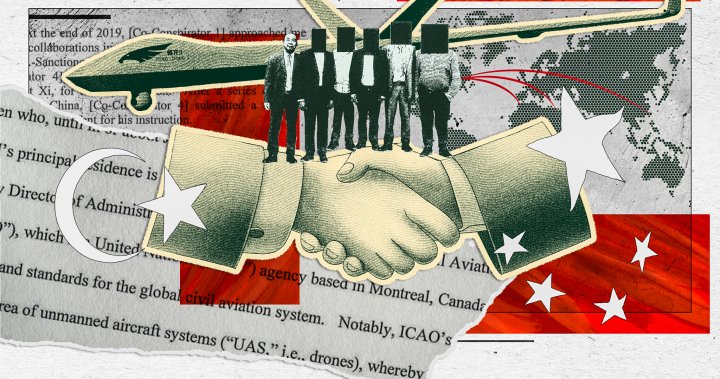The Federal Bureau of Investigation (FBI) arrested James Kuang Chi Wan, a former deputy director at the International Civil Aviation Organization (ICAO) in Montreal, on January 21, 2023, at Seattle-Tacoma International Airport. Wan, a 62-year-old Canadian resident, is accused of orchestrating a complex scheme to broker over $1.54 billion worth of arms, including drones, missiles, and shoulder-fired missiles, from China to Libyan militants between 2019 and 2023. This alleged operation violated U.S. arms export control laws and international arms embargoes against Libya. The FBI’s criminal complaint, filed in the U.S. District Court for the Eastern District of New York, details Wan’s alleged collaboration with six co-conspirators, including one Canadian and an individual purportedly linked to Chinese President Xi Jinping. Wan allegedly stood to gain financially from these transactions, with evidence suggesting he profited handsomely from the scheme. This case underscores growing concerns about China’s alleged use of international organizations and intermediaries to facilitate clandestine operations, including foreign interference and arms trafficking.
The FBI’s investigation, led by counterintelligence special agent Gary Phillips, reveals a multi-national operation involving covert communications, meetings, and financial transactions. The alleged scheme aimed to empower Libyan warlord Khalifa Haftar’s forces in the ongoing civil war, solidifying China’s influence in the region while bypassing international sanctions. China, in return, allegedly anticipated favorable business opportunities in a post-war Libya under Haftar’s rule. The complex web of transactions involved front companies in the U.K., Egypt, and China to mask the true nature of the deals and avoid international scrutiny. These revelations, based on FBI documents and RCMP affidavits, illustrate the intricate methods allegedly employed by China to advance its geopolitical interests.
Wan’s alleged connection to the illicit arms deals emerged through his association with Mahmoud Mohamed Sayeh, a Libyan colleague at ICAO. Sayeh allegedly approached Wan in December 2018, leveraging Wan’s close ties to Chinese officials to facilitate arms deals with the Chinese Ministry of Foreign Affairs and the Aviation Industry Corporation of China (AVIC). Wan, with his background in aviation studies in China, was positioned to navigate the complexities of the aerospace industry and negotiate contracts. The RCMP affidavits further allege that Wan boasted “direct communication channels” with Chinese government representatives, facilitating high-level discussions and agreements regarding the arms transactions.
The alleged scheme unfolded through a series of meetings and discussions involving Wan, Chinese diplomats, state aerospace executives, and Libyan representatives. One such meeting, documented by a photograph obtained by the FBI, placed Wan with a member of Haftar’s group in April 2019. Initially, the deals were allegedly channeled through a company called China Raybo International, which Wan purportedly linked to the family of President Xi Jinping. Later, due to concerns over UN sanctions, the deals were shifted to AVIC and its affiliates, using front companies to obscure their involvement. This shift highlighted the delicate balance between Chinese ambitions in Libya and the risk of international repercussions.
The financial aspects of the alleged scheme reveal a substantial profit motive for the involved parties. Notes seized by the FBI from a May 2021 video conference call suggest a planned $190 million commission to be split among Wan, his co-conspirators, and their respective companies. This substantial sum underscores the potential financial rewards associated with circumventing international arms embargoes and profiting from conflict. Additionally, Wan’s unexplained wealth became a subject of inquiry by a Canadian financial institution in July 2022, further raising suspicion regarding his financial activities. This inquiry, coupled with the FBI’s seizure of Wan’s financial records, suggests a deeper investigation into the flow of funds related to the alleged arms deals.
Following his dismissal from ICAO in December 2021 for unrelated conflicts of interest, Wan’s alleged activities came under increasing scrutiny. Border authorities in both the U.S. and Canada conducted searches of Wan, revealing his travel to Libya and prompting further investigation into his activities. Wan’s attempts to explain his travel as related to a medical equipment project were met with skepticism by investigators, who subsequently accessed his email accounts, phone records, and banking information. Wan’s growing awareness of surveillance is evident in his November 2022 email, where he expressed concerns about government monitoring and severed connections with personal contacts on WeChat, a Chinese messaging service. The seizure of Wan’s electronic devices, including his computer, hard drive, phone, and ICAO-branded thumb drives, provides a wealth of potential evidence for investigators to analyze and potentially corroborate the allegations against him. While the outcomes of the drone deals and the full extent of Wan’s alleged financial gains remain unclear, these investigations expose a complex web of international intrigue and raise critical questions about the role of international organizations in facilitating illicit activities.

